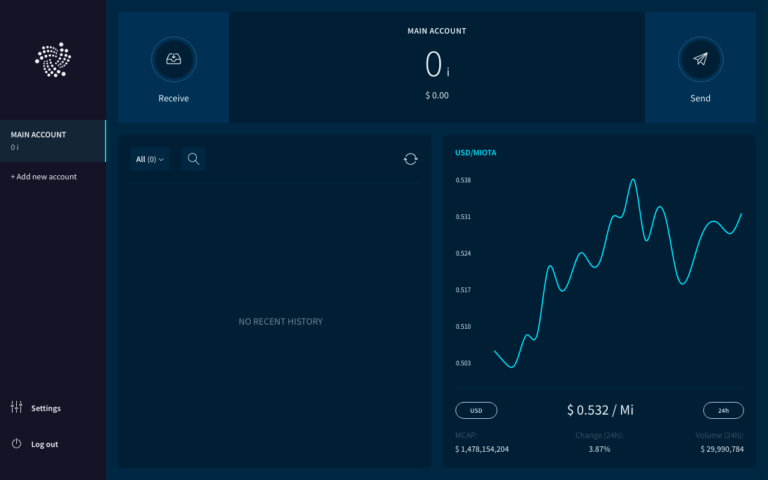On 25 August 2018, the IOTA Foundation announced the public beta release of the “Trinity Desktop” (for Mac and Windows) wallet app.
The mobile version of the “Trinity Wallet” for IOTA was created by self-taught programmer Charlie Varley (under the supervision of Dr. Navin Ramachandran of the IOTA Foundation) while he was working on his Master’s in Computer Science at University College London. After finished his studies, Charlie joined the IOTA Foundation (on 22 January 2018).
January 2018 is when the IOTA Foundation took the Trinity project under its wing and began “an official alpha test involving just over 250 users on iOS and Android.” This led to an even greater focus on safety and security. Then, on 21 March 2018, the foundation announced that since the Trinity code had been through many structural changes, it was imperative that an external audit of the mobile versions of the app be carried before they could move to a public beta test. This audit process, which was led by German IT security firm Accessec, started in March 2018.
On 29 May 2018, the beta release of the “Trinity Mobile” (for iPhone and Android) wallet app was announced.
Then on 7 July 2018, via a blog post titled “Trinity wallet — Summer update”, we found out more about the state of the Trinity Desktop wallet:
“Desktop has been in alpha for a few months now, with around 500 community members meticulously testing and diligently reporting any bugs. If you are enjoying Trinity Mobile you will certainly be impressed by Rihards Gravis’ (AKA iota.dance) work on Trinity Desktop. It is a fully-feature laden app, with a fancy UI, that makes seed-generation, seed storage and sending IOTA back and forth a seamless and secure process. With the last of the security features (SeedVault) implemented, we can now submit the app for its second audit (which will be conducted by Accessec GmbH).”
Most importantly, we learned that Trinity Desktop is feature complete against Trinity Mobile.
And finally, today, the IOTA team announced that beta version of Trinity Desktop was available for download at the Trinity website. The app, once again, has had a comprehensive external security audit (by Accessec). All of the code for both Trinity Mobile and Trinity Desktop has now been open-sourced and is available on IOTA’s Github repo.
According to the latest version of the Trinity roadmap, the following features are common to both Trinity Mobile and Trinity Desktop: node quorum; encrypted QR; remainder chaining; multi-language support; internal transfer; tangle explorer; and deep linking. The features that are specific to Trinity Desktop are Ledger Nano S support, Trezor support, and YubiKey 2FA support.









